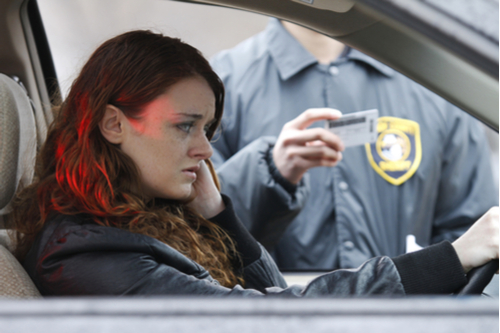Driving With Medical Conditions

Do you or a loved one have a medical condition that affects the ability to operate a motor vehicle? If so, there may be restrictions placed on your New York State driver’s license. Having a restriction on your license does not necessarily mean that you can no longer drive. The New York State DMV can learn about a medical condition through various means, including by a respondent’s answers on an application for a permit or driver’s license, through an accident report, a report submitted by a doctor or police officer, or by a report from a family member of a driver or concerned citizen. The Law Offices of Michael H. Ricca wants you to know there is still potential for you to drive.
New York State imposes restrictions on drivers based on their medical conditions to keep all motorists, including yourself, safe on the roads while operating a motor vehicle. When a restriction is placed on a driver’s license, the driver will either have a limitation placed on their license or will need to meet specific conditions before operating a motor vehicle. One of the most common medical restrictions placed upon a driver’s license is the “corrective lenses” restriction. With this restriction, before you can operate a motor vehicle, you must wear corrective lenses or eyeglasses when driving. This medical condition restriction will be indicated on the back of your New York State driver’s license under “RESTRICTIONS.” Other examples of medical condition restrictions include daylight driving only when an individual has vision impairment while driving at night, requiring the use of a hearing aid or full view mirror while operating a motor vehicle, and use of a prosthetic device among others.
If you suffer from a medical condition whereby you can lose consciousness or awareness such as epilepsy or dizzy spells, you are required to submit a “Physician’s Statement for Medical Review Unit” to the DMV for further evaluation of a medical restriction. This form needs to be completed by a qualified doctor. Other medical conditions can be reported through the use of the “Physician’s Statement” form.
Once the New York State DMV learns of a driver’s medical condition that may affect their ability to operate a motor vehicle, you will be require to discuss your medical condition with the DMV with respect to how it impacts your ability to drive. You will need to provide medical documentation to the DMV for their review and determination if a medical restriction is warranted on your license. In addition, depending on the medical condition, you may be required to take a vision test, written test, or road test. If you fail to submit the requested documentation to the DMV or do not pass the required tests, your driver’s license or learner’s permit may be suspended or revoked.
The Law Offices of Michael H. Ricca represents motorists throughout Nassau and Suffolk Counties. To learn more about medical condition restrictions on your New York State driver’s license or if you have received a traffic ticket contact our attorneys at (516) 500-1647 for your free telephone consultation or visit us online at www.NassauCountyTrafficLawyer.com and complete our legal consultation form.

Heart Surgeon
April 1, 2019 at 2:23 am
What can happen to my driver license if my medical condition affects my driving or I fail to submit medical documentation?
Michael H. Ricca
April 1, 2019 at 3:14 pm
Your driving privileges can be suspended within the state. Please give us a call for a free telephone consultation. (516) 500-1647. We would be more than happy to assist.